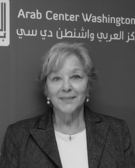
Nikki R. Haley, Ambassador-designate to the United Nations
On November 22, 2016, President-elect Donald Trump nominated South Carolina Governor Nikki Haley as his ambassador-designate to the United Nations. Haley has few foreign policy credentials or experience, but she received high marks for her deft handling of the 2015 shooting at Emanuel African Methodist Episcopal Church in South Carolina, which prevented a potentially ugly racial confrontation. She also handled the removal of the confederate flag from the statehouse, a contentious issue in the south, with admirable political skill.
During the presidential campaign Haley was a frequent critic of Trump and challenged many of his positions. She later said she was glad he won and had in fact voted for him. Her foreign policy views are unknown, but she is supportive of free markets and global trade. Although she has been a successful and popular governor, she will find the United Nations a very different place from the state capitol of Charleston, South Carolina. She will need to hone her nascent diplomatic skills.
Haley, the daughter of Indian immigrant parents, was the first woman and Indian-American, and the youngest at age 44, to serve as South Carolina’s governor. She is the first woman and first minority nominee chosen to serve in the Trump administration.
In 2004, Haley ran for a seat in the South Carolina House of Representatives and faced a challenge in the primary from incumbent Republican Larry Koon, the longest-serving member of the House at that time. She won the primary and then the general election, in which she ran unopposed, and became the first Indian-American to hold office in South Carolina. She ran unopposed for reelection in 2006, and defeated her Democrat challenger in 2008. As a Republican, Haley’s platform was anti-tax and fiscally conservative. She voted for bills that restrict abortion and those that protect fetuses. As the child of legal immigrants, Haley has expressed support for greater enforcement of immigration laws.
Haley, who is also a member of the Tea Party movement, announced in May 2009 that she would run for governor in 2010. She was endorsed by former Massachusetts Governor Mitt Romney and former Alaska Governor Sarah Palin. She won the election on November 2, 2010. In 2012 she was on the short list of Republican presidential candidate Romney’s choice for Vice President. Her official biography can be found here.
Israel-Palestine: In 2015 Haley signed state legislation to prevent Boycott, Divestment, and Sanctions (BDS) against Israel. As a result, Israel was one of the first countries to welcome her. Haley will most likely take a pro-Israel stance at the United Nations. The South Carolina BDS law prohibits any public entity from doing business with companies engaged in “discriminatory” boycotts—based on race, religion, gender, or national origin. While this may have been intended as an anti-BDS law, it makes no mention of Israel, Palestine, or the BDS movement.
Refugees: Haley has said that all who are willing to work hard and abide by US laws should be welcomed in the United States. However, she has expressed concern about the adequacy of vetting procedures in place for Syrian refugees who have resettled in South Carolina and has said she opposes the admission of refugees whose intentions cannot be fully determined. Unlike some other governors, however, she has not sued the Obama administration to block resettlement.
Kathleen Troia “KT” McFarland, Deputy National Security Advisor-designate
On November 25, 2016, President-elect Trump announced the second female appointment to his cabinet, Kathleen Troia “KT” McFarland. McFarland, a Fox News commentator, was a former Pentagon spokesperson and veteran of the Nixon, Ford, and Reagan administrations. With the election of Trump, McFarland proclaimed that the “adults are now back in charge.”
In the 1970s, McFarland worked as an aide to then-National Security Advisor Henry Kissinger. From 1982 to 1985, she served as the Assistant to the Secretary of Defense for Public Affairs under President Ronald Reagan, and as senior speechwriter for Secretary of Defense Caspar Weinberger. In 1984, she wrote Secretary Weinberger’s groundbreaking speech that described US policy on the use of military force; this speech later became known as the Weinberger Doctrine. In 1985, she received the Defense Department’s highest civilian award for her work in the Reagan administration. After her government service, McFarland worked as a Fox News national security analyst. In 2006 she unsuccessfully sought the Republican nomination in New York to challenge Hillary Clinton for her Senate seat.
McFarland is a distinguished advisor to the Foundation for Defense of Democracies, a neo-conservative advocacy organization that was founded in the wake of the 9/11 attacks with the goal of pushing an aggressive “war on terror” in the Middle East as well as “pro-Israel” policies in Washington.
Iran: McFarland has been an outspoken critic of JCPOA (the Joint Comprehensive Plan of Action, or the Iran nuclear deal) stating that she, like Trump, believes it is a bad deal. She has said, “We gave them everything up front—the money, the sanctions, and the path to nuclear weapons—and we demanded nothing in return.”
Syria: In 2013, McFarland wrote that it was Russian President Vladimir Putin, and not President Obama, who deserved credit for using diplomacy to prevent an attack on the Syrian government’s chemical weapons stockpiles. Her views on Russia mirror those of National Security Advisor-designate Michael Flynn. McFarland believes that the Obama policy of leading from behind allowed Putin to advance Moscow’s goals in Syria.
Saudi Arabia: In a discussion about the Iran nuclear deal, McFarland suggested that Saudi Arabia is dishonest about supporting the agreement because “they’re Arabs” and “not going to say to your face something that they know is going to upset you.”
Libya: According to the media watchdog Media Matters for America, McFarland has made dubious claims such as saying that the Benghazi CIA compound under attack in 2012 did not receive additional security because Ambassador Christopher Stevens could not contact Secretary of State Clinton via a State Department e-mail address.
Terrorism: After the Paris terrorist attacks in November 2015, McFarland called for stricter counterterrorism policies in the United States, including “terrorist profiling,” according to Bloomberg.
Final Comment
Many political observers assume that National Security Advisor-designate Michael Flynn will call the shots on foreign policy with McFarland in total agreement. It will be important for Flynn and McFarland to be in basic agreement with the yet-to-be-named Secretary of State, and UN Ambassador-designate Haley, on the crucial foreign policy decisions that President-elect Trump and his national security team will confront.

